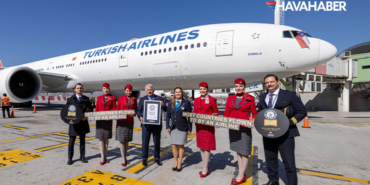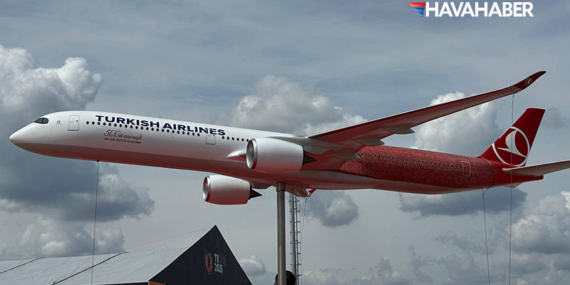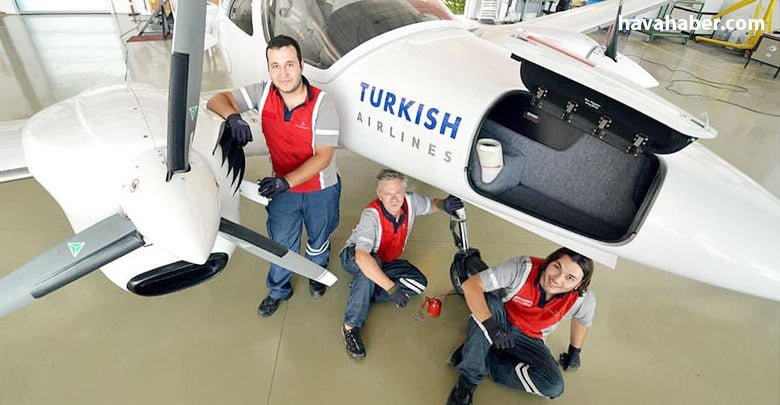Turkish Airlines is one of the leading airlines in the world, but it also has its weaknesses. One of the weaknesses of Turkish Airlines is its inconsistent customer service, which can result in dissatisfaction among passengers. Another weakness is the airline’s limited route network, which may not offer as many options for travelers compared to other major airlines. Additionally, Turkish Airlines has faced criticism for its older fleet of aircraft, which may affect the overall travel experience for passengers. Furthermore, the airline has struggled with punctuality issues, leading to delays and inconvenience for customers. Finally, Turkish Airlines has been criticized for its baggage handling procedures, which can lead to lost or damaged luggage for passengers.
When considering the weaknesses of Turkish Airlines, it is important to note that the airline has faced challenges with its loyalty program, which may not offer as many benefits or rewards as other major carriers. Additionally, the airline has been criticized for its food and beverage options, which may not meet the expectations of some passengers. Furthermore, Turkish Airlines has faced scrutiny for its seating arrangements, which may not provide as much comfort or space as other airlines. Moreover, the airline has struggled with communication issues, which can lead to confusion and frustration for passengers. Finally, Turkish Airlines has faced criticism for its handling of flight disruptions, which may not always be effectively managed for the convenience of travelers.
1. Fleet Age and Size
Turkish Airlines faces a weakness in its fleet age and size. While the airline has been expanding its fleet, the average age of its aircraft is relatively high compared to some of its competitors. An older fleet can lead to higher maintenance costs and potential reliability issues, which can impact the overall operational efficiency of the airline.
Furthermore, the size of the fleet may limit the airline’s ability to expand its route network and offer more frequent flights to popular destinations. This can put Turkish Airlines at a disadvantage compared to larger carriers with a more extensive fleet.
2. Intense Competition
Another weakness of Turkish Airlines is the intense competition it faces in the global aviation industry. The airline operates in a highly competitive market, facing competition from both legacy carriers and low-cost airlines. This can put pressure on the airline’s pricing strategies and profitability, as well as its ability to attract and retain customers.
Additionally, the competition can also impact the airline’s market share and route development, making it challenging for Turkish Airlines to maintain a strong position in key markets.
3. Political and Economic Instability
Turkish Airlines is susceptible to the political and economic instability in the regions it operates. The airline’s hub is located in Istanbul, and the geopolitical tensions and economic fluctuations in the region can impact its operations and financial performance. Political unrest, terrorism, and economic downturns can lead to a decrease in passenger demand, affecting the airline’s revenue and profitability.
Furthermore, currency fluctuations and trade disputes can also affect Turkish Airlines’ operating costs, especially fuel expenses and aircraft maintenance, potentially impacting its overall financial health.
4. Dependence on Transfer Passengers
One weakness of Turkish Airlines is its dependence on transfer passengers. As a major connecting hub between Europe, Asia, and Africa, the airline relies heavily on transfer traffic. While this strategic positioning provides opportunities for growth, it also exposes the airline to the risk of fluctuating transfer passenger numbers due to external factors such as geopolitical events, economic downturns, or changes in travel patterns.
Moreover, the reliance on transfer passengers can make Turkish Airlines vulnerable to competition from other connecting hubs, as well as disruptions in the global travel network, affecting the airline’s overall operational stability.
5. Reputation Management
Turkish Airlines faces challenges in reputation management due to various incidents and accidents that have occurred in the past. While the airline has made efforts to improve safety standards and customer service, the lingering impact of previous incidents can affect its brand image and passenger perception. Negative publicity and public distrust can lead to a decrease in customer loyalty and hinder the airline’s efforts to attract new passengers.
Managing and repairing the airline’s reputation requires ongoing efforts in transparency, accountability, and communication to rebuild trust and confidence among travelers and industry stakeholders.
6. High Operating Costs
The high operating costs present a weakness for Turkish Airlines. Factors such as fuel expenses, labor costs, and airport fees contribute to the airline’s overall cost structure. Fluctuations in fuel prices and currency exchange rates can further impact the airline’s operating expenses, affecting its profitability and financial performance.
To address this weakness, Turkish Airlines needs to focus on cost management strategies, operational efficiency, and fuel hedging practices to mitigate the impact of high operating costs on its bottom line.
7. Limited Market Presence in North America
Turkish Airlines has a limited market presence in North America compared to its European and Asian counterparts. While the airline has been expanding its route network to the U.S. and Canada, it faces challenges in competing with established carriers that have a strong foothold in the North American market. This limitation can impact the airline’s ability to capture a larger share of the lucrative transatlantic travel market.
To overcome this weakness, Turkish Airlines needs to focus on enhancing its marketing efforts, strengthening partnerships with North American airlines, and offering competitive services to attract more passengers traveling to and from the region.
8. Dependency on Tourism
As a significant portion of its revenue comes from tourism-related traffic, Turkish Airlines is vulnerable to fluctuations in the tourism industry. Adverse events such as political unrest, natural disasters, or global health crises can lead to a decline in tourist arrivals, affecting the airline’s passenger numbers and financial performance. The dependency on tourism traffic exposes the airline to the cyclical nature of the travel industry.
To mitigate this weakness, Turkish Airlines needs to diversify its revenue streams by targeting more business and leisure travelers, developing new routes, and strengthening partnerships with corporate clients and travel agencies to reduce its reliance on tourism-related traffic.
9. Regulatory and Compliance Challenges
Turkish Airlines faces regulatory and compliance challenges, particularly in meeting international safety and security standards, as well as adhering to evolving industry regulations. Compliance with international aviation regulations and standards requires continuous investment in training, technology, and infrastructure, which can pose a challenge for the airline, especially in a rapidly changing regulatory environment.
To address this weakness, Turkish Airlines needs to prioritize safety and compliance, invest in advanced safety measures, and ensure that its operations meet the highest industry standards to maintain a positive safety record and regulatory compliance.
10. Limited Connectivity in Secondary Markets
While Turkish Airlines has a strong network connecting major cities around the world, it faces a weakness in providing comprehensive connectivity in secondary and tertiary markets. Limited flight options and frequencies in smaller cities can impact the airline’s ability to capture a broader customer base and compete effectively with carriers that offer extensive regional connectivity.
To overcome this weakness, Turkish Airlines needs to explore opportunities to enhance its regional network by adding more routes, increasing flight frequencies, and strengthening partnerships with regional airlines to improve connectivity in secondary markets and attract more passengers from those regions.
| Weaknesses |
|---|
| 1. Safety concerns due to past incidents |
| 2. Limited route network compared to some competitors |
| 3. Inconsistent customer service quality |
| 4. Intense competition in the airline industry |
| 5. Dependence on tourism and business travel |
SONUÇ
Turkish Airlines has some weaknesses including safety concerns, limited route network, inconsistent customer service quality, intense competition, and dependence on tourism and business travel. These weaknesses can impact the overall performance and reputation of the airline in the competitive airline industry.








